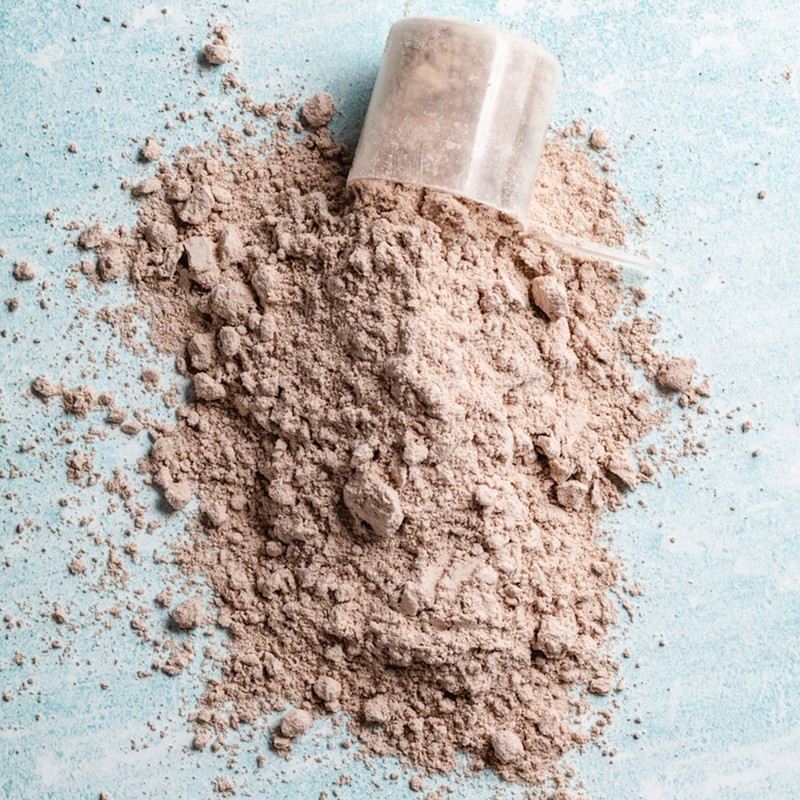
Why You Should You Be Using A Protein Powder
Protein Powders Are Worthwhile If You’re A Regular Gym Goer
Both the NHS and British Nutrition Foundation recommend 0.75g of protein per kilogram of bodyweight per day, but recent studies suggest these guidelines are too low, especially if you’re active. Research suggests that if you do more than 150 minutes of exercise per week, it could be worth eating 1.2 to 1.5g of protein per kg of bodyweight, while strength and endurance athletes will need even more. A protein powder is a simple and convenient way to pack in the protein, with one scoop providing around 20g, helping you on your way to your daily target in an easy-to-digest manner. Even if strength training isn’t your thing, your muscles tear during exercise (including during yoga and running) and require protein in order to repair and rebuild themselves. Protein is also worth considering following an injury, when the body is working hard to repair damaged tissues. As Paula Werrett, nutritional therapist says, “If you do a lot of training, are looking to enhance recovery from sports or are trying to lose weight, a protein powder can be useful. They can also help you build muscle, repair tissue, and can control appetite and blood sugar balance. There is evidence that increasing protein in the diet can be useful if you are trying to lose weight, too.”
The Benefits Extend Further Than Your Muscles
“There is a misconception protein is only for body builders, which couldn’t be further from the truth,” says Damian Soong, CEO of Form Nutrition. “Though protein is no doubt important to body builders, it’s a key macronutrient in the human diet that should be ingested daily by everyone to maximise the healthy functioning of the body. Protein plays a part in just about every bodily process you can think of – from cellular repair to hormone production, hair growth to immune system response.” Damian also says that not eating enough protein reduces lean body mass, muscle strength and function, and can cause muscle cramping, weakness and soreness. “When you don’t eat enough protein, your body will take protein from muscle tissue and use it as energy to support other vital body functions. This will eventually lead to muscle wasting and atrophy, which isn’t good if you’re looking to build a strong, resilient body.”
Using Protein Powder Won’t Make You Bulk Up
Many women worry that increasing their protein intake will make them bulk up and look more muscular than they may like, but the reality is it takes hours and hours and a specific type of training programme to even begin to build enough muscle to look like a body builder. Increasing your protein intake may well result in more defined muscles (if taken alongside regular training) but you are highly unlikely to start to look like a body builder any time soon.
If You’re Over 40, Consider It
Did you know that once you reach your forties, your body loses muscle mass at a rate of 1-2% every year? “This may not sound like a lot, but the side effects are far from desirable: weakness, fatigue and vulnerability to injury,” Damian says. “The body develops what is known as anabolic resistance with age. In layman’s terms, a 40-year-old body is less likely to make protein compared to a 20-year-old body, even if you eat the same amount of protein. This means that in order to have the same muscle mass as you did when you were younger, you should be increasing your protein intake.” If you are aged 40 and above, Damian says you should aim to eat 1-1.2g of protein per kilogram of your bodyweight. Again, a protein powder can help you on your way to this daily target.
Those Who Can Tolerate Lactose Should Choose Whey
A mere glance at the protein shelves make it clear the choice is greater than ever, but when it comes to powders, not all were created equal. Whey protein – which is made from a milk derivative – has long been lauded as the best form of protein powder as it’s around 60-70% protein, higher than many plant-based options. As Paula explains, “Whey protein has some advantages over other protein powders as it contains all the essential amino acids and is easily digested. It also contains helpful levels of cysteine and glutamate, two amino acids that help the body make glutathione, an important protective nutrient that’s needed in greater quantities during stress. Additionally, some whey protein powders also contain immunoglobulins, which have specific benefits for immunity and gut health.”
Lactose Intolerants Should Go Vegan
If you struggle to digest lactose or are vegan, consider a plant-based protein powder. Look to hemp, pea and rice varieties, and ideally blends that feature a combination of at least two sources – vegan protein can be deficient in certain amino acids so combining two, say hemp and pea, is a sure-fire route to a well-rounded blend. If you are looking to enhance muscle recovery, it could be worth trying a pea-based powder, which are naturally rich in arginine, 6-12g of which a day has been shown to significantly boost fitness performance. If you struggle with IBS or post-workout tummy issues, rice protein could be worth a try as its zero-fibre content (compared with hemp’s 8g per scoop) makes it easier on the gut.
It Doesn’t Matter When You Take Them
There’s a misconception eating protein – whether in the form of a smoothie or snack – within an hour of exercise will maximise your gains. However, Damian says more recent research has been shifting toward overall levels of protein over 24 hours, implying a more balanced approach may be more beneficial. “While the concept of post-workout protein has been well popularised, studies show there is no difference in body composition between people who take protein after a workout and those that don’t. What isn't undisputed, however, is the need to keep daily protein levels up and this is best done by consuming quality protein during the course of the day – in both the form of real food and supplements if required. Plus, while it might not be critical to consume a protein shake immediately after a workout, it is an easy habit and if this helps your compliance in meeting your daily protein requirements, then that’s a good thing. Just don’t stress if you forget – your gains are safe."
Always Read The Label
As clean eating has increasingly become a staple in the conversation surrounding diet, so too, has the demand for clean protein. The majority of us now look for streamlined ingredients list that are better for your body and easier to digest – and brands have risen to the occasion. So, what should you be looking for? “Steer clear of artificial flavours, sweeteners and colourings, thickeners and emulsifiers, soy protein isolate, modified starch, crystalline fructose, corn syrup and vegetable oil,” advises Vanessa Rohmig, nutritional therapist. “Instead, keep an eye out for protein powders that contain added green and fruit powders, which provide an antioxidant boost, as well as curcumin, a great ingredient for aiding recovery. Added digestive enzymes can also support healthy digestion, as can a few different sources of plant-based protein.”
There Are Endless Options
Your daily dose of protein doesn’t have to come in smoothie form. As Becs Sandwith, nutritionist at Innermost says, “There are so many ways to get creative with protein powder. Try adding it to your overnight oats or mixing into porridge; you can even mix it with milk and pour it over your cereal, muesli or granola. Blending protein powder with banana, oats, egg and a dash of milk makes delicious pancakes that are packed with protein and fibre, while mixing powder with Greek yoghurt makes a tasty healthier dessert. You can even bake with it, enhancing the protein content of baked goods such as muffins and cookies.”
Ready to get going? Shop SL’s edit of the best protein powders…
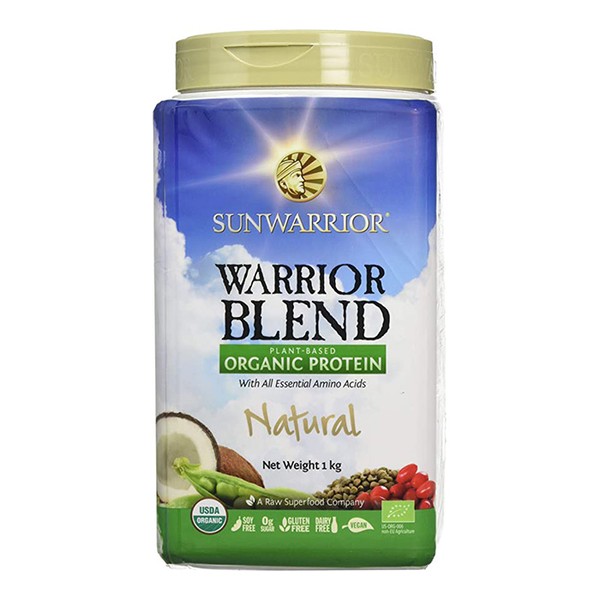
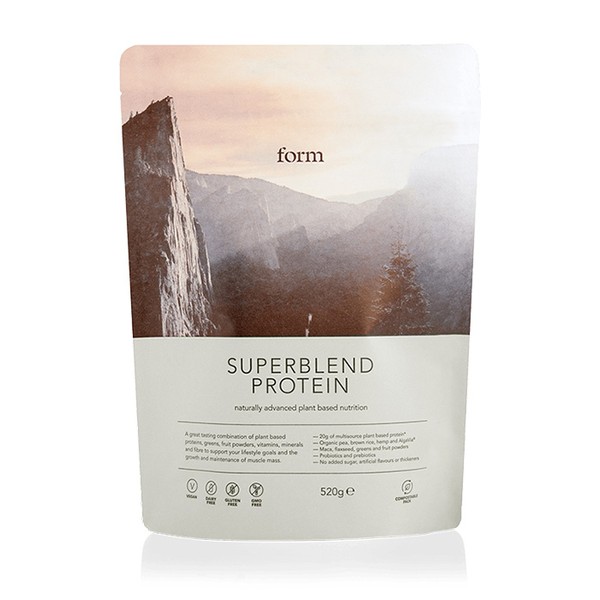
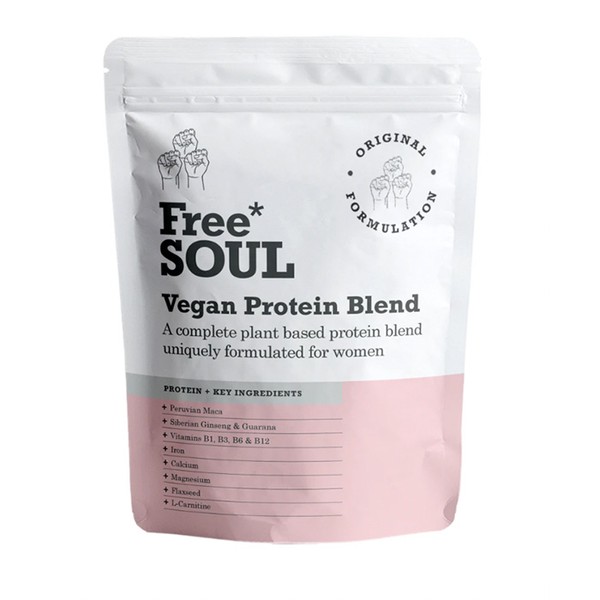
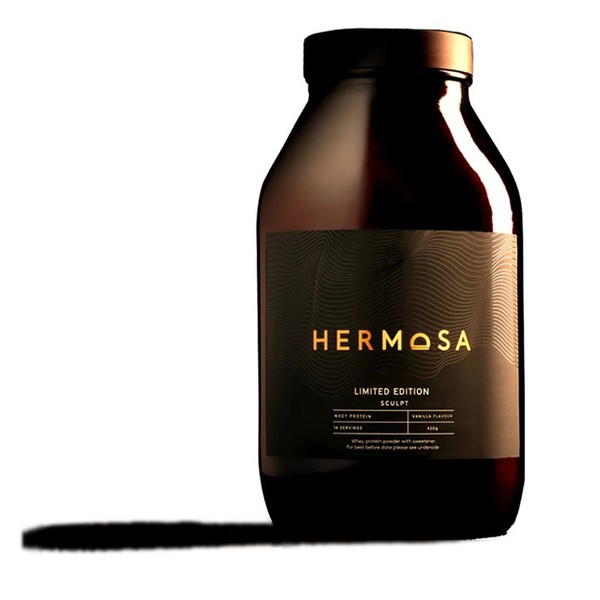
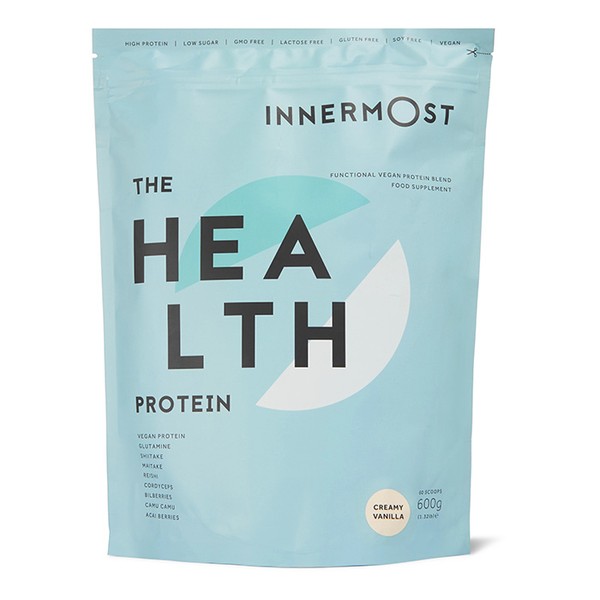
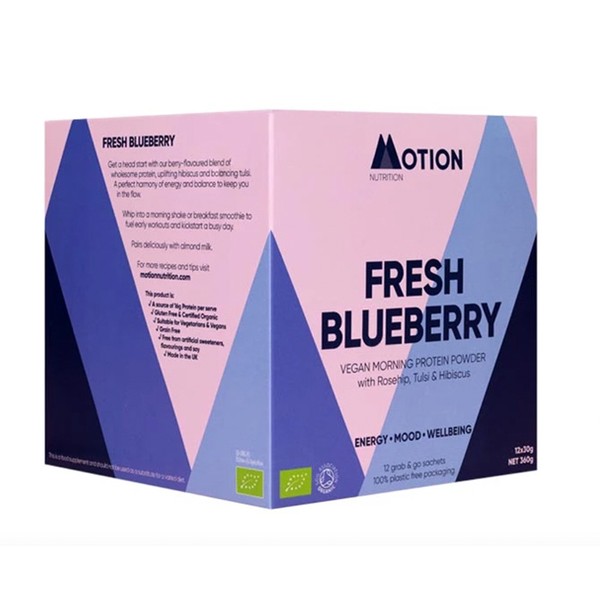
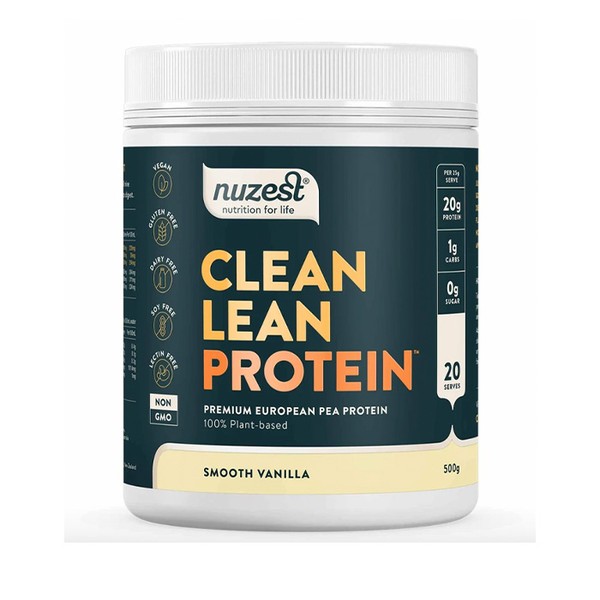
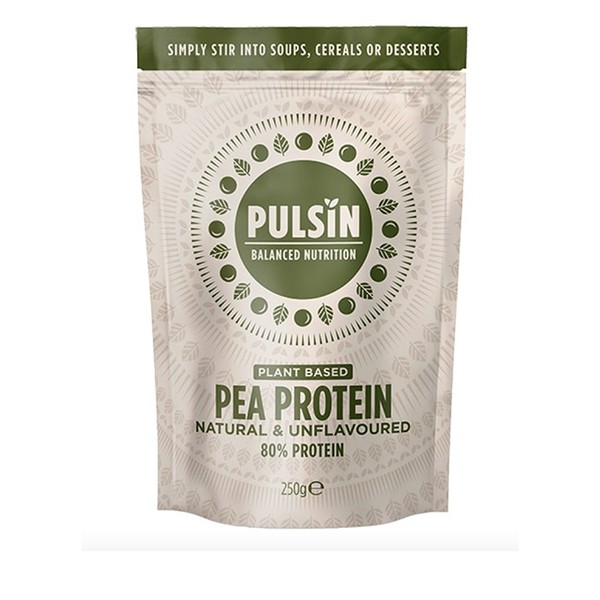
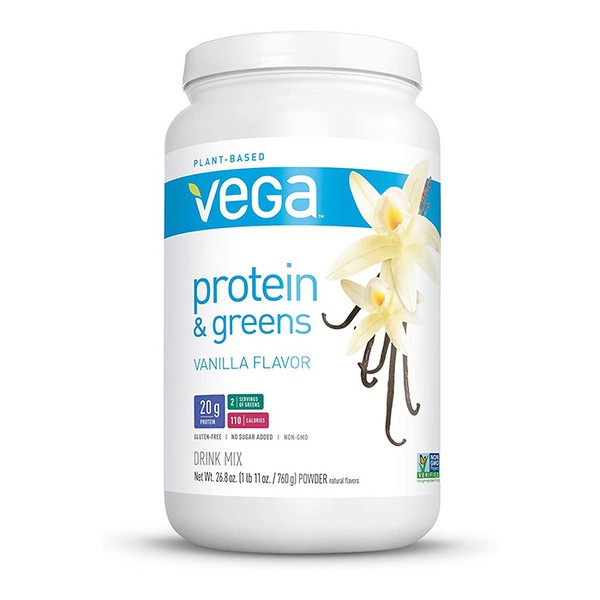
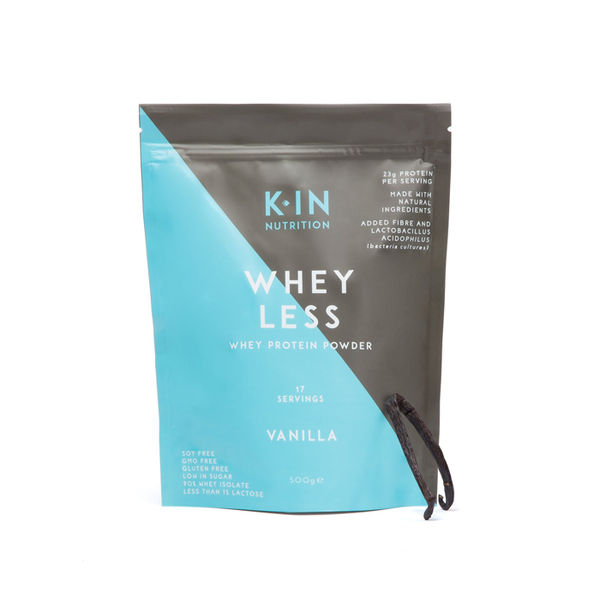
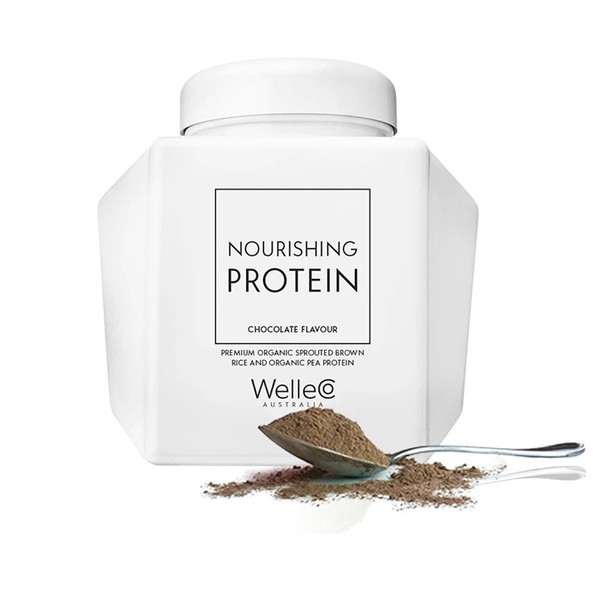
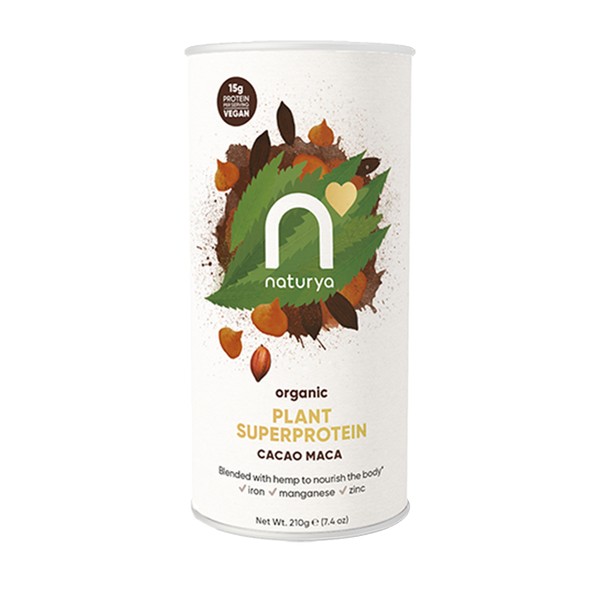
For more information visit FormNutrition.com, ION.ac.uk and LiveInnermost.com
DISCLAIMER: Features published by SheerLuxe are not intended to treat, diagnose, cure or prevent any disease. Always seek the advice of your GP or another qualified healthcare provider for any questions you have regarding a medical condition, and before undertaking any diet, exercise or other health-related programme.
CREDIT: ISTOCK/DANIEL MEGIAS
DISCLAIMER: We endeavour to always credit the correct original source of every image we use. If you think a credit may be incorrect, please contact us at info@sheerluxe.com.

